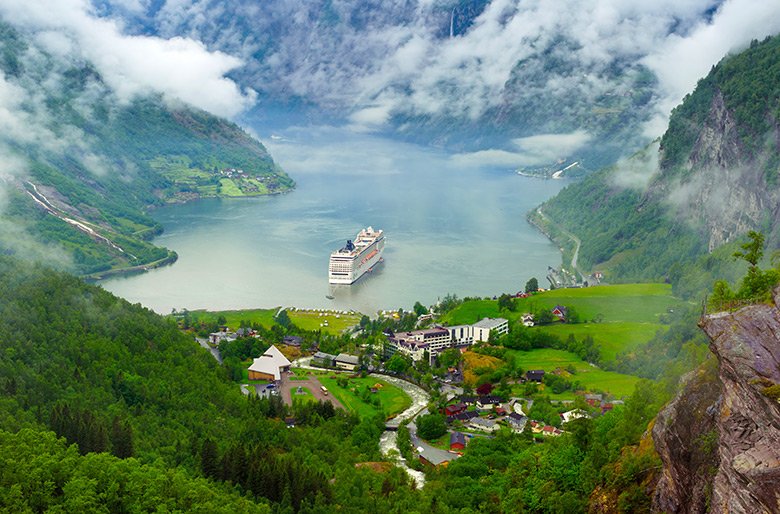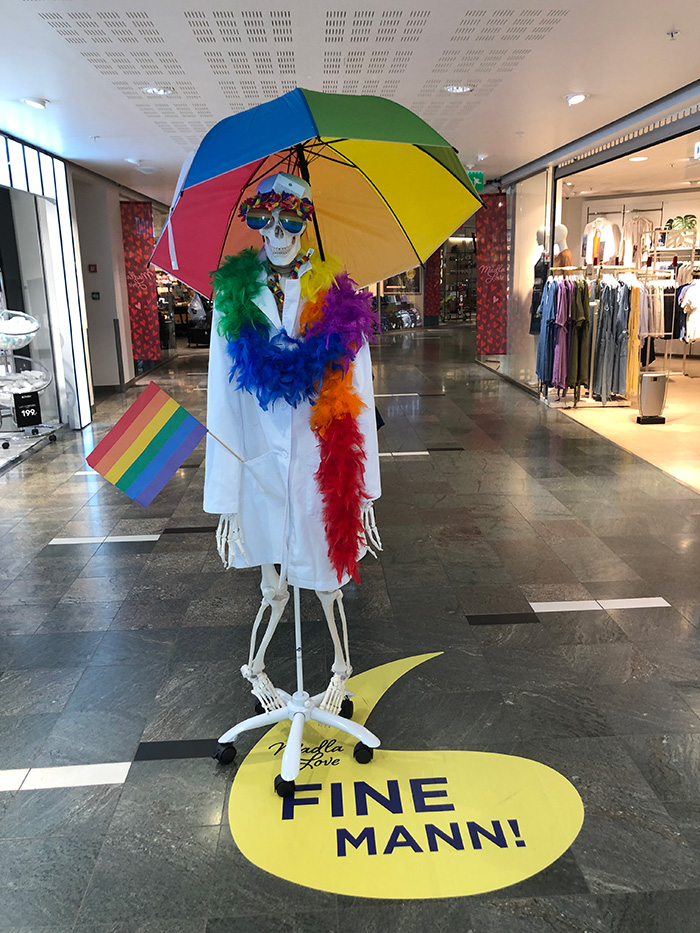What's so Great About Norway?

What's so great about Norway? Why did you move back? These are questions I've been asked countless times; questions to which there are no short or fool-proof answers.
I didn't move because I had to, nor because I particularly wanted to at the time. I was happy in the Middle East. I miss the sound of the adhan, the outline of the minaret, fresh bread with hummus and muhamra and the smell of frankinsence so much it makes my eyes sting thinking about it.
I moved because for us, it was the right thing to do.
In the midst of trying to decide whether or not to accept an unexpected job offer and repatriation to Norway, taking three kids out of school mid year and causing hugely upsetting upheavals and changes for the whole family, I read Helen Russel's book Leap Year: How Small Steps Can Make a Giant Difference
I'd loved the subtle humour of her first book, Living Danishly, and I started reading, wine in hand, hoping to learn something while also giggling. Frankly, I really needed a bit of a giggle at the time. As it turned out, Helen wrote her book while grappling with issues similar to mine; an elderly parent falling ill while you live in a foreign country, raising children far from family, 'we are going back at some point so why not now' - as well as that sense of crippling indecision in the face of big changes and questions affecting not just yourself but everyone around you I know so well.
"A huge amount of time and energy can be invested in attempting to make the 'perfect decision,' " I read, nipping my glass of wine and nodding in agreement, "... but no such thing exists."
"You need to understand what the critical criteria are. Decide what the deal-breakers are for you and make a decision with these in mind."
And just like that, my indecision faded. I drained my glass and told my husband I'd be taking the children to live in Norway no later than at the end of the school year, regardless of what he decided to do about his job offer.
Here are my deal breakers; core values I find in Norway, values I want my now tween-teen children to grow into adults surrounded by.
Freedom for everyone
This text was written the evening before Norwegian constitution day - after the bunad shirt had been ironed (not as straightforward as it sounds!), the flags had been readied and the children put to bed, reassured that they knew many enough 'national songs' to blend in and not be an embarrasment in the children's parade.

While the children celebrated flag waving, ice cream and cameraderie that day, I celebrated constitutional freedom. Freedom of speech. Freedom of faith. Freedom of press and freedom of organisation. Freedom from persecution and freedom from slavery.
These are freedoms I grew up with, freedoms I took for granted. Since then, I have lived under extreme censorship; in places where dissident comments might get you arrested or deported, where I was afraid to say and write what I really meant, where activists are quietly silenced.

I didn't realize how much my freedom meant until I had to make do without. I don't want my children to grow into adults having to make do without.
I'll never take my freedom for granted again, and my children will not grow up thinking it's something everyone enjoys. When they want to demonstrate for animal rights, human rights, fly skam or whatever their interests may be, I won't have to tell them 'be careful, you might get arrested' or 'please stay home, what you're doing is illegal.' I won't - but some other mother will, and that, they will learn.
The welfare state
Norway is one of the most comprehensive welfare states in the world.
- Childcare is subsidized and therefore affordable to most.
- Education up until the age of 16 is mandatory and free. Higher education holds no tuition fees and although students are required to purchase books and materials, the cost is manageable to most. University is free from tuition fees and student loans and grants are available to all.
- Health care is free for children and reasonably priced for adults (dental care, surprisingly, less so).
- Waste management is dealt with; as are roads, the postal service and continued infrastructure in the districts.
Some may argue that the country is going to the dogs. Yes, there are wait lists for several medical procedures. The ever more unpopular toll roads seem to plague all larger cities, and frankly, I'm not convinced the elderly necessarily receive the care they deserve. Also, I really wish good coffee was more affordable and some days, 48% income tax is hard to swallow.
Comparatively speaking, though, life in Norway is pretty good and perhaps more importantly, it's pretty good for everyone, regardless of what your name is, who you know and what you're able to pay in bribes. The welfare state and high income taxes even out differences to an extent where yes, some are certainly better off than others, but nobody lost before the game even started. This is the model of societal responsibility and equality I want my children to grow into responsible adults in.
Equal rights and oppportunities, freedom from discrimination and identity
Growing up, trying to figure out who you are to yourself and to others, is hard. Growing up trying to figure out who you are when the categories of what is socially and legally acceptable are narrow, is even harder.

Equality, equal rights and equal opportunity in terms of gender, ethnicity, race, religion and sexual orientation are cornerstones of Norwegian society - so much so, that it makes up a chapter in the "Norwegian Culture and Values' program for foreigners seeking Norwegian residency and/or citizenship.
I want my children to grow into adults surrouded by freedom of choice, not rigid expectations, norms and laws.
If they want to join a religion, they can. If they want to pierce their bodies, shave their heads and wear orange jumpsuits to school, they can. They may be asked why and I'm sure some eyebrows will be raised (we still live in middle class suburbia, after all) but their appearance is theirs to choose.
When my daughter wants to be a , a priest, a hairdresser or a prime minister - she can. When she wants to train to become a geologist, she won't be met by societal norms suggesting a fieldtrip in the company of men is culturally questionable. And my son ? When he wants to become a nurse, I hope everyone has stopped saying 'male nurse', and refers to him as, simply, 'nurse'. I hope, as a primary school teacher, he will have an even spread of male and female colleagues. As a CEO I hope he invites everyone home for dinner and when he chooses to stay at home with his children while his partner works, he will simply be one of many dads (and mums) taking care of their babies.
If my daughter comes home one fine day with a same-sex partner, I don't want to tell her to hide her love because it's illegal. If she wants to get married; adopt a child; she can.
Things aren't perfect - besides, what is 'perfect' anyway, if not 'room for disagreement'? My point was never to suggest that in Norway, everyone agrees with me and shares my core values. Far from it.
My point, I guess, is this: moving to Norway meant living somewhere my core values are largely reflected, through laws and norms, in society around me. Moving to Norway, where extensive freedoms and equal rights are granted all citizens will, hopefully, allow my teens to grow into the adults they choose to be, with as much freedom of choice as I am able to give them.